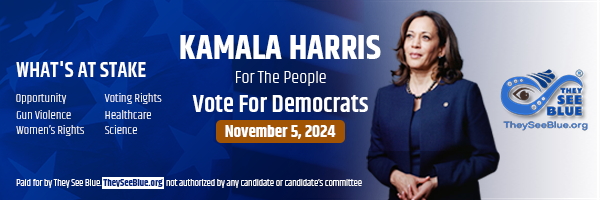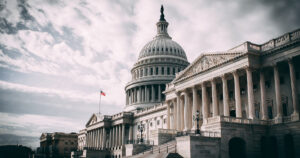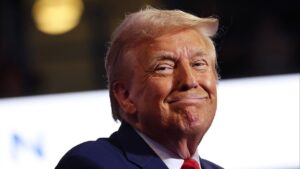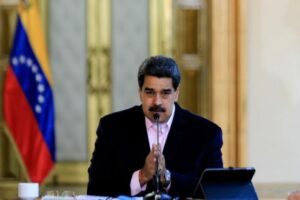Sudan’s prosecutor general on Thursday ordered the questioning of deposed president Omar al-Bashir over money-laundering and “financing terrorism”, as protesters staged a vast rally in Khartoum to demand a civilian government.
A source in the prosecutor general’s office confirmed reports on state media that acting public prosecutor general Al-Waleed Sayyed Ahmed had ordered Bashir’s questioning under “anti-money laundering and financing terrorism laws”.
Three weeks after Bashir was ousted by the military, vast crowds of demonstrators thronged the area around Sudan’s army headquarters in Khartoum Thursday for a “million-strong” march demanding a civilian administration.
Protesters gathered in even greater numbers than recent days, packing all the roads and bridges leading to the central Khartoum complex, AFP correspondents there said, as talks between protest leaders and the country’s military rulers remained deadlocked.
The two sides have agreed to form a joint civilian-military council to rule Sudan, but are at odds over its composition.
Protesters are demanding a civilian majority, while the army wants a council dominated by generals.
The disagreement prompted the alliance to call for a “million-strong” march to assert their demand.
“We want civilian rule and we will keep coming until that happens,” said protester Emad Abbas.
– Warning against ‘chaos’ –
Bashir ruled Sudan with an iron fist for three decades. During his rule the country was placed on Washington’s list of state sponsors of terrorism over its alleged links with Islamist militants.
Al-Qaeda founder Osama bin Laden lived in Sudan between 1992 to 1996.
Bashir’s regime was replaced by a 10-member military council.
Protest leaders from the Alliance for Freedom and Change want to replace that with a mixed body, but say the generals are not serious about handing power to civilians.
As the wrangling persisted Thursday, crowds flocked to the army headquarters in central Khartoum to join the thousands who have remained camped there round-the-clock for weeks.
Protest leaders on Thursday handed the military council proposals for the new civilian structures they want to see rule the country eventually, including executive and legislative bodies.
The army said it would examine the document and “continue with our communication with the alliance”.
But the military council has also warned it will not allow “chaos” and urged protesters to dismantle makeshift barricades they have erected around the site, where several roads remain blocked.
Those already filling the square Thursday kept up a festive atmosphere, with loudspeakers blaring out revolutionary songs and vendors selling fruits and peanuts.
In an interview with AFP Wednesday, Sadiq al-Mahdi, Sudan’s former premier and main political opponent of Bashir, warned protest leaders against provoking the military.
“If we provoke the… armed forces which contributed to the change, we would be asking for trouble,” said Mahdi, whose National Umma Party is part of the protest movement.
– Civilian rights –
The military council’s deputy head Mohammad Hamdan Dagolo has said it is “committed to negotiations”.
Hamdan, widely known as Himeidti, spoke of incidents since the protests first broke out in December including looting and burning of markets.
He said across the country six security personnel were killed during protests on Monday.
The spokesman of the military council Shamseddin al-Kabbashi said the “armed forces must remain in the sovereign council” because of tensions in the country.
But protesters say civilians must dominate the new body.
“If the military council took the majority in the sovereign council, the rights of civilians would not be guaranteed at all,” said protester Hassan Rabeh, from the central town of Gadaref.
The announcement on the joint civilian-military council on Saturday was seen as a breakthrough aimed at paving the way for detailed negotiations on a roadmap for the formation of a civilian government.
The Alliance for Freedom and Change also insisted that the transitional administration must include representatives from armed groups who spent years battling Khartoum, without naming specific groups.
Rebels took up arms in the western region of Darfur in 2003, prompting the regime to unleash tribal militias in a conflict the UN says killed 300,000 people and saw Bashir accused of genocide.
Other conflicts in the southern states of Blue Nile and South Kordofan have also left thousands dead.
The protesters have won support from Western governments for their demand for civilian rule.
But Gulf Arab states have provided the military council with a three billion dollar (2.7 billion euro) credit lifeline to support an “orderly” transition.













